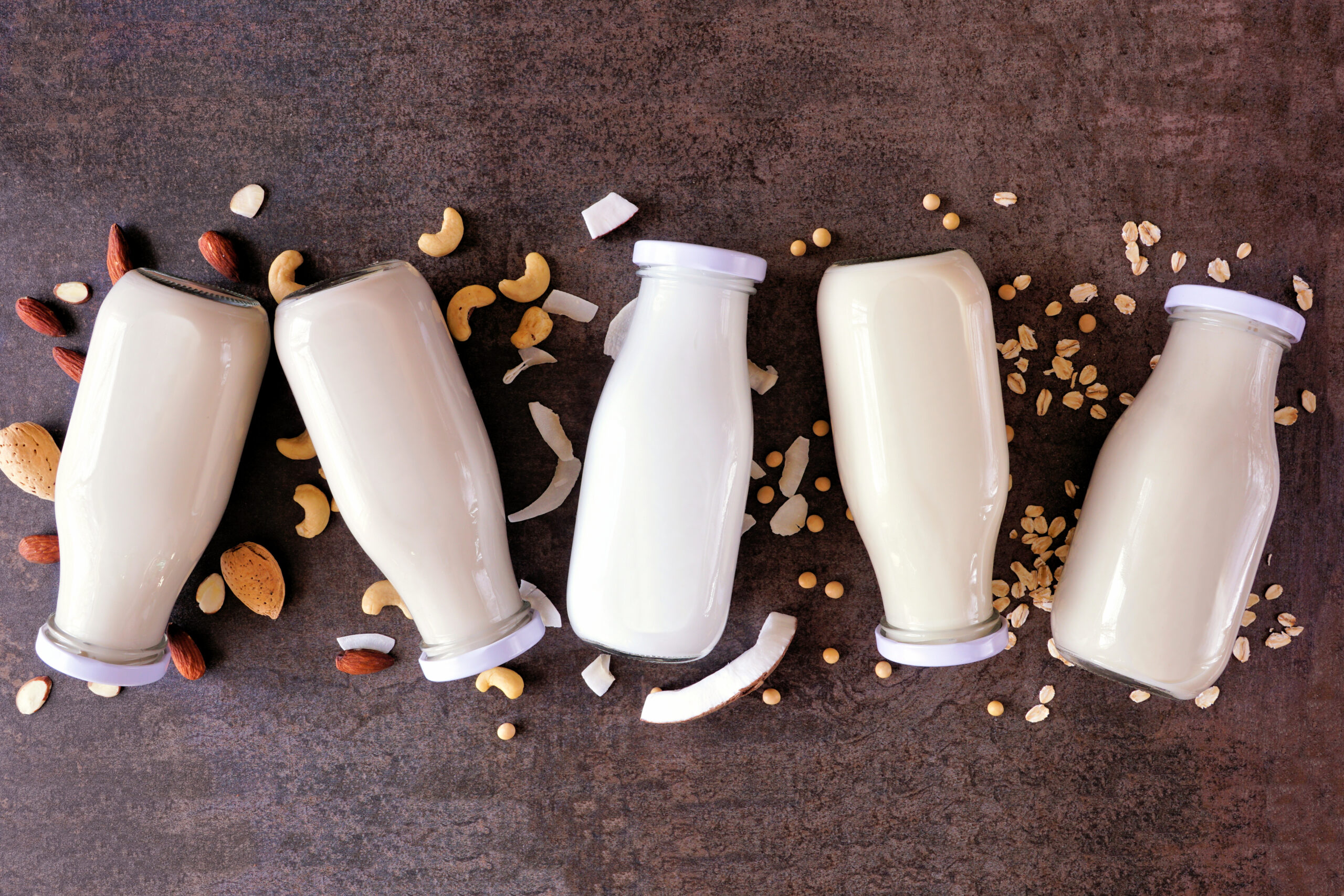
Plant-based dairy alternatives such as milk, yoghurt and ice-cream have increased in popularity over the past few years- just look at how much more prime shelf space they occupy on your supermarket shelves. Usually made from soy, almond, oat and coconut, there is a wide ever-expanding variety of options to choose from. Despite the wide range, not all dairy-free products are created equal from a nutritional perspective and for some brands, the only part they share in common is the word milk or yoghurt!
What’s the attraction of dairy-free alternatives?
People are making the switch to dairy-free yoghurts for a wide range of reasons, including taste preferences, perceived health benefits such as weight loss or heart health, animal welfare, ethical and environmental/sustainability reasons, lactose intolerance and/or cow’s milk protein allergy to name a few.
Is plant-based dairy right for you?
If you’re confused and still wondering whether plant or cow’s milk dairy is best for you from a nutritional perspective, here are a few things to consider.
Your protein requirements
Cow’s milk dairy products are naturally high in protein, so choosing a dairy-free yoghurt, with the exception of soy-based varieties, may result in reduced protein intake. This can be detrimental, especially if you have increased requirements such as in athletes, older adults over 65 years of age, undergoing treatment for cancer or post-operative healing. If you do want to go dairy-free, choose soy-based products as they have a similar amount of protein to cow’s milk. Other plant-based products may have added protein, so it’s a good idea to frequently check the Nutrition Information Panel. Aim for a minimum of 4g protein per 100mls or 100g. These products commonly use soy protein or pea protein so be aware if you have an allergy or intolerance to either.
Your calcium requirements
Calcium is an important part of our diet as it plays a vital role in the normal development and maintenance of teeth and bones, as well as nerve and muscle function. Requirements for calcium can vary across the lifespan. For example, children aged 9 – 11 yrs and women aged 19 – 50 yrs need 1000mg per day, whereas adolescents aged 12-18 yrs and women aged 51+ need larger amounts at 1300mg per day. Cow’s milk products naturally contain calcium. It is important that if you choose dairy-free alternatives, choose products fortified with added calcium. Check the Nutrition Information Panel and choose varieties with at least 120mg calcium per 100g or 100mls. As the calcium in tofu can vary widely, look for calcium set tofu that has added calcium sulfate.
Saturated (animal) fat
There is conflicting evidence on whether full-fat or reduced-fat cow’s milk dairy is better for high cholesterol and heart disease. Although cow’s milk yoghurt does contain some saturated fat, the benefits of the protein and calcium can outweigh this for some people. Your Dietitian can make recommendations to suit your requirements. If you prefer dairy-free products, be aware that coconut-based yoghurts are high in saturated fat compared to other plant-based yoghurts.
Lactose intolerance
Lactose is a type of sugar (disaccharides) found naturally in cow’s, goat’s and sheep’s milk and products made from them. Lactase is the enzyme produced by your body that breaks down lactose into the smaller sugars, glucose and galactose which can then be easily digested and absorbed. Lactose intolerance occurs when your body doesn’t produce enough of the lactase enzyme to break down all the lactose you consume can cause symptoms such as abdominal pain and cramping, bloating, wind, diarrhea, and general discomfort.
Plant-based dairy products are naturally lactose-free, however check if they are fortified with calcium and if on a vegan diet a protein-fortified variety is a great option. Otherwise, lactose-free cow’s milk is a suitable substitute for people who are lactose intolerant.
Palate pleasure
At Dietwise, we take the approach that eating should not be all about hitting targets 100% of the time. Honouring food preferences to satisfy palate pleasure should also be a priority too. If you have swapped to plant-based dairy based on the latest food trend, however, prefer the taste of cow’s milk dairy, you will likely not be consuming sufficient quantities to meet your nutritional requirements across the week.
Get in touch with us today
Dietwise, your trusted dietitians and nutritionists in Perth, Western Australia, can help you navigate the dairy-free landscape and to help you make informed decisions tailored to your goals. Remember, your health journey is unique, and Dietwise is here to provide expert guidance every step of the way. Reach out today to our Dietwise Care Coordinators to get started by contacting us on – 08 9388 2423 or reception@dietwise.net.au. You can even contact us through our website here. We are open 6 days per week for in-person and Telehealth appointments including both after-hours and Saturdays.
Written by
Caylah Batt and Sonya Douglas

